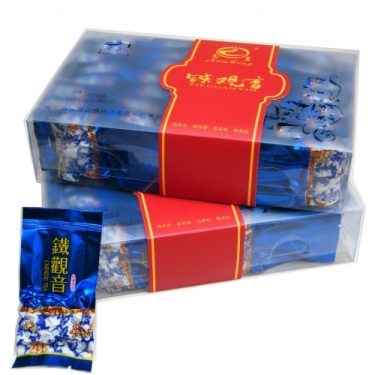Easily assembled, eco friendly tent greenhouses garden grow mini type and feature
No tool required!
1.Ideal for propagating seeds,growing plants&vegetables.
2.Roll-up zipped front panel for easy access.
3.Protect plants from too much heat or cold,shield plants from dust and gale and keep out pests.
4.Includes guy ropes&ground pegs for extra stability
5.The cover is renforce PE interwoven cover.
6.The frame is rust proof and galvanised.
7.Easy to assemble!
8.UV stabilised
Garden Greenhouse,Mini Garden Greenhouse,Green Garden Greenhouse,Poly Garden Greenhouse JIANGSU SKYPLAN GREENHOUSE TECHNOLOGY CO.,LTD , https://www.alibabagreenhouse.com Fujian Anxi Tieguanyin belongs to oolong tea and is one of China's ten famous teas. For Chinese people who like to drink tea, Tie Guan Yin is deeply loved by consumers. However, media exposure in recent years shows that there are various quality problems in Tieguanyin in Anxi County, Fujian Province. The quality inspection departments found that the quality problems mainly involved “excessive pesticide residueâ€, “exceeding rare earth contentâ€, and “false propagandaâ€.
Fujian Anxi Tieguanyin belongs to oolong tea and is one of China's ten famous teas. For Chinese people who like to drink tea, Tie Guan Yin is deeply loved by consumers. However, media exposure in recent years shows that there are various quality problems in Tieguanyin in Anxi County, Fujian Province. The quality inspection departments found that the quality problems mainly involved “excessive pesticide residueâ€, “exceeding rare earth contentâ€, and “false propagandaâ€.
On October 18, 2012, the Food Safety Office released a new phase of food safety information. The Beijing Municipal Administration for Industry and Commerce recently found 5 unqualified samples in the sampling of food in circulation in the city, including an iron sold by TESCO Tesco Daxing Jinxing Road Store. Guanyin tea was found to have a pesticide residue exceeding 3 times DDT. According to the department of industry and commerce, the Tieguanyin has no trademark, and the manufacturer is Jinbang Baiyun Tea Factory in Anxi County, Fujian Province.
On August 21, 2012, the Beijing Municipal Administration for Industry and Commerce announced a batch of information on the shelves. The two “Guishinge†Tieguanyin produced by the Midan Tea Factory of Anxi County in Fujian Province were all detected to have exceeded the standard. The measured value of the rare earth content of the above tea leaves was three or four times the standard value, respectively. One of the batches also detected twice as much pesticide content as trichlorin. According to the relevant person in charge of the “Daihuo An Barâ€, the largest tea online shopping mall in China, the allowable standard value of rare earth content in tea is 20 mg/kg.
On July 20, 2012, according to the test data of Bai Tingting's master thesis "Anxiu Oolong Tea Pesticide Residue Rule and Origin of Rare Earth Pollution," the Ansai Tieguanyin's rare earth content was seriously exceeded. The qualified production rates of the four major tea samples in the four major production areas, namely Tiger Chiu, Xiping, Jingu, Gande and Xianghua, were 45%, 20%, 0, 40%, and 15%, respectively. The average content of rare earth in Jingu Autumn Tea is as high as 10.2mg/kg, and Xianghua Autumn Tea ranks second, reaching 5.1mg/kg, which greatly exceeds the provisions in GB2762-2005 "Contaminants in Food Limits" - rare earth in tea The content should be less than or equal to 2 mg/kg.
On June 27, 2012, the initial prospectus of Fujian Anxi Tieguanyin Group Co., Ltd. (hereinafter referred to as “Anxi Tieguanyinâ€) marked the official IPO of Anxi Tieguanyin. However, the reporter found through the prospectus that Anxi Tieguanyin was suspected of false propaganda, and at the same time, 95% of its Maocha relied on outsourcing, which also had potential safety problems. In the prospectus, Anxi Tieguanyin repeatedly mentioned the “health effectâ€. The reporter visited the Anxi Tieguanyin Group’s Beijing store yesterday and found that the store’s sales of Fengshan Brand’s 18-year-old Chen tea contained a card directly in the product package. Claiming to have a health care function, the card said that the series of products have been identified by the Fujian Province Institute of Integrated Traditional Chinese and Western Medicine, and have several functions such as lipid-lowering, blood-sugar-lowering, weight-reducing, and nourishing stomach. Dong Jinshi, a well-known food safety expert, said in an interview with reporters: "Ordinary foods are not allowed to promote health effects."
On November 10, 2011, the General Administration of Quality Supervision, Inspection and Quarantine of the People's Republic of China (AQSIQ) announced the results of the national supervision and spot checks on the quality of the 37 categories of products. The results showed that a specification model of Shenzhen Lezhifu Trading Co., Ltd. produced on May 1, 2011 was 200g/bag. The Grade-II Zhifu Brand Anxi Tieguanyin tea does not meet the requirements of the relevant standards. The major unqualified items are rare earths (standard value: ≤2.0 mg/kg, measured value: 2.8 mg/kg). The location of the spot check product is in Guangdong Province, and the inspection agency is the National Tea Quality Supervision and Inspection Center.
In recent years, scientists at home and abroad have confirmed that the chemical components and mineral elements in Tieguanyin have special functions for human health. However, quality inspection departments in Fujian Anxi Tieguanyin repeatedly appeared this or that product quality problems, which makes consumers have a strong question of their product quality.